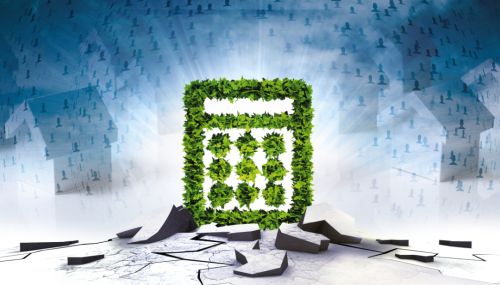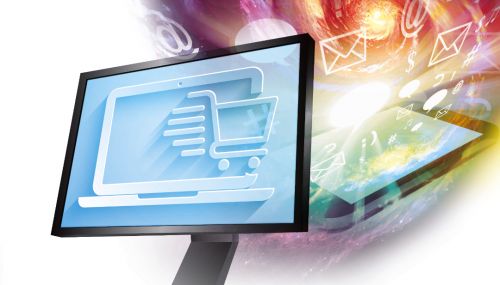All
Lessons from the Storm
by Richard Rutigliano, PriMedia, Inc.

2018 kicked off with record breaking cold, snow, and wind … and you probably have quite a few tales to tell! While many dealers skated through without a stumble, others found themselves slipping and falling behind.
Our industry faced a wide range of issues as the calendar turned over. Increased demand from a cold snap that lasted almost three weeks and broke records almost daily. New customers, calling for the first time, looking for immediate delivery. Long-term customers who hadn’t been able to shovel their driveways and walkways. Drivers and technicians out sick or injured from slipping on ice. Trucks breaking down. Heating systems breaking down. Pipes freezing. The calls didn’t stop, your trucks didn’t stop, your service reps didn’t stop, and you didn’t stop. Added to the mix of things that set this cold spell apart from previous ones: social media and online review sites. Unhappy customers wasted no time to post a review or comment.
Yes, most companies were able to keep their customers happy, even if their delivery schedule got pushed back a day or two. Most customers understood the realities of snow-blocked roads and increased demand and were willing to work with you. On the other hand, there were a few fuel dealers who didn’t have enough fuel for their customers, and compounded the issue by hibernating during the worst of the weather. These “horror stories” are what got on the news, overshadowing all the good work most of our peers were doing.
If the January snowstorms proved anything, it’s that extreme weather presents challenges – and opportunities – for smart marketers, but the time to strike is when the customers are still hot (under the collar).
First, take stock.
Despite your best efforts, was your company unable to keep up with demand? All the long hours you put in don’t matter to the customers who ran out of fuel. Turn the situation around by taking action and addressing the snowman in the room.
As we said earlier – most customers understand that you were trying your best. But you also have to understand the concerns of those customers without heat. Many may have had senior citizens or infants in the house – both of whom would be even more susceptible to the frigid temperatures.
Send a letter to those customers – and only those customers. Make it personal and address them by name. Remind them about the record-breaking temperatures and your impeccable history of service, but also apologize for the delays and offer something to “make it up to them.” We’ve seen companies offer a free service plan or account credit, but regardless of the gift, the important point is to acknowledge the customer’s distress and promise to do better next time. Don’t think of these offers in terms of the cost to your company. Instead, realize that every customer who takes you up on the offer is a customer you’ve saved for another year.
What if everything went well, and you didn’t disappoint anyone? First of all: congratulations. But that doesn’t mean you can’t send a letter – or postcard – or email – highlighting the hours your team put in, and the great work they all did. Tell a story or two of a memorable or meaningful call. Thank your great customers for clearing paths or offering coffee to the drivers still on the road at 10 p.m. If you all pulled through together, let all your customers celebrate with you for a job well done.
Managing Communications and Expectations.
We noticed something interesting very early in the year. Many of our clients with online ordering asked for changes to their platforms. Some asked for pop-ups explaining that deliveries were taking longer than usual, and others provided information about the storm and what to do if heat shut off. But in almost every case, they asked that their online order system be turned off!
“Wait, what?” you ask. Isn’t online ordering the way of the future? How could they do that? What about their business?
Well, their business managed quite well, because they managed their customers’ expectations.
By requiring the customer to call the office for service or delivery, it ensured they would speak to a customer service representative. That “live person” could ask questions to assess the situation; determine how much, if any, fuel was left in the tank; and find out if there were any extenuating circumstances that might make this delivery more urgent than another. In other words, like the intake nurse in an emergency room, your CSR could help you triage the calls that came through, so the most imperative would be dealt with first. At the same time, your front-line staff could explain to a customer with 60 gallons in the tank that they had enough fuel to get through the next couple days, and that you would be there before it was an issue, even though it wouldn’t be today.
Once the customer speaks to someone “live” rather than a machine or computer screen, they know they have been heard, and can hear the response. That’s the basis of all good communications, and the basis of long-lasting relationships.
What about those reviews?
Social media and review sites like Yelp were instant barometers of your company’s storm response. Happy customers may have posted praise for your professionalism and expertise, but for sure the unhappy customers posted their complaints. You need to reply to the good, the bad and the absolutely ugly. The good is easy – a quick thank you for their business, their understanding, and their kind words.
The bad and the ugly are more difficult to answer, but even more important. Before you respond, take a breath. Remember, the customer is frustrated. The first thing you need to do is defuse the situation.
- Reply as quickly as possible that you are looking into the situation. In some cases, it is difficult to connect a Facebook identity with a name in your books. Don’t guess – ask the customer to contact or message you with the account information – name, address and phone number – so you can find out what happened.
- Get the information. Check with your dispatcher, your driver, your technician, your CSRs. Make sure you know who said/did what, where and when.
- Don’t get into a he-said/she-said type discussion on social media. Facebook is not the place to straighten out a problem.
- Call the customer. Clear up any miscommunications, and tell them what arrangements you’re making to correct the situation, if necessary. Very often your direct action can lead to that customer updating a 1-star slam with a 5-star rave.
The team at PriMedia spent much of early January helping our customers manage their online reputations with responses to reviews and comments on Facebook, Google and Yelp. One of the easiest “fixes” (and one of our favorite stories, as it represents how easily a misunderstanding can blow up) was when a decades-long customer posted to Facebook, at around 2 p.m., that the delivery she was told to expect that day never arrived. Our client was surprised. His records showed that her fuel was delivered at 5:30 that morning. He called her immediately. Ooops! She had been watching for the truck only since 7:00 a.m., so didn’t know her fuel tank was filled before she even woke up. Yes, this woman went and updated her social media post … not only apologizing for besmirching the company, but also praising them for the friendly, personal phone call that cleared up the matter.
Where to next? Right now, set yourself apart.
The “bomb cyclone” shone a harsh light on some dark practices. There were companies that promised rock-bottom delivery prices, and then couldn’t deliver and wouldn’t answer the phone. Others used the emergency situation to raise prices so high they are now accused of price gouging. And as COD companies went MIA, you may have picked up their slack. Now pick up their customers for good.
The customers of these companies will be looking for new providers. Some will be looking right away, if they haven’t jumped ship already. Others may be tied to service agreements, but will be changing dealers as soon as they can. There’s nothing wrong with putting your company out in front, and letting these unhappy homeowners know that your customers were kept comfortable all along.
We recommend you mix up traditional marketing with the new, creating a well rounded campaign of print ads, radio, postcards and direct mail as well as social media marketing, email blasts, digital advertising. This multi-layered approach will help you reach the greatest number of potential customers and position your company’s dependability, honesty and expertise as the solutions to their home comfort. PriMedia has developed a ready-to-use campaign specifically on this issue, and would be happy to review it with you.
Remind your customers of winter come spring.
As a full-service fuel provider, you offer your customers value-added services like automatic delivery, service plans and emergency service, and budget programs. These services add to your bottom line and your per-gallon cost. For the last few years, with mild winters in the customers’ rear view mirrors, many customers have opted out of these services and turned to discount dealers for their heating oil or propane.
January put the true value of all these value-added services on full display. Automatic delivery customers got priority over will-call. Service plan customers were scheduled ahead of those without a contract, and often saw a technician well after midnight, without having to pay any additional fees. And of course, your budget plan customers were able to get that extra delivery without breaking their bank.
Start planning now, so that come March and April, you are ready to sign up every customer who was not on automatic delivery, a service agreement or a budget plan. Remind them of what we all went through during and after the holiday season, and let them know how to protect themselves next year. This is a win-win all around. Your customers will be happier; and since there’s greater retention with budget plan/automatic delivery customers, you will keep these happy customers longer.
PriMedia has weathered winter storms with our industry partners for 25 years. We are here to help you make the most of the opportunities available, with ready-to-use and custom solutions for your cold weather response strategy. Call 1-800-796-3342 or contact us online to get started with a free consultation.
Related Posts
 Show Your Work
Show Your Work
Posted on April 17, 2024
 Beyond the Gateway
Beyond the Gateway
Posted on March 12, 2024
 Fill Your Idea Parking Lot for 2024
Fill Your Idea Parking Lot for 2024
Posted on February 12, 2024
 Known Knowns and Unknown Unknowns
Known Knowns and Unknown Unknowns
Posted on December 7, 2023
Enter your email to receive important news and article updates.
